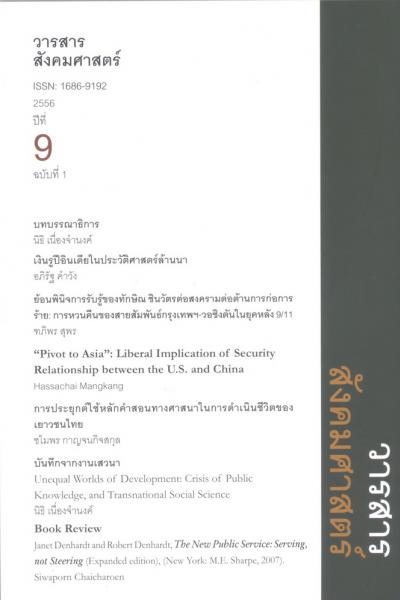Rethinking Thaksin Shinawatra’s Perceptions of the War on Terrorism: The Return of Bangkok-Washington Relations in the Post 9/11 Era
Main Article Content
Abstract
The investigation of Thaksin Shinawatra’s Perceptions is necessarily important to the understanding of Thailand’s foreign policy decision making after the incident of 9/11. This article asserts that in the early campaign of war on terrorism, Thaksin didn’t realize the terrorist attacks as a threat towards Thailand’s national security as much as the communist threat during the cold war. Nonetheless, Thaksin, a leader who has positive perceptions towards the U.S., was willing to support the American grand strategy entitled the war on terrorism, in open and secret ways. In the first phase of the war on the terrorism, Thaksin declared that Thailand would remain strictly neutral; however, after the movements of terrorist groups in the Southeast Asia, particularly in Thailand, Thaksin perceived it as a threat and decided to change Thailand’s position from strictly neutral to extremely support the U.S. This article argues that the change of Thailand’s foreign policy under Thaksin administration went beyond the notion concept of bending with the wind, according to the mainstream explanation of Thai diplomatic history. Rather, it was the pattern of harmonization of interests between domestic and international politics, which ultimately pave the way to firmly restore the U.S.-Thai relations.


